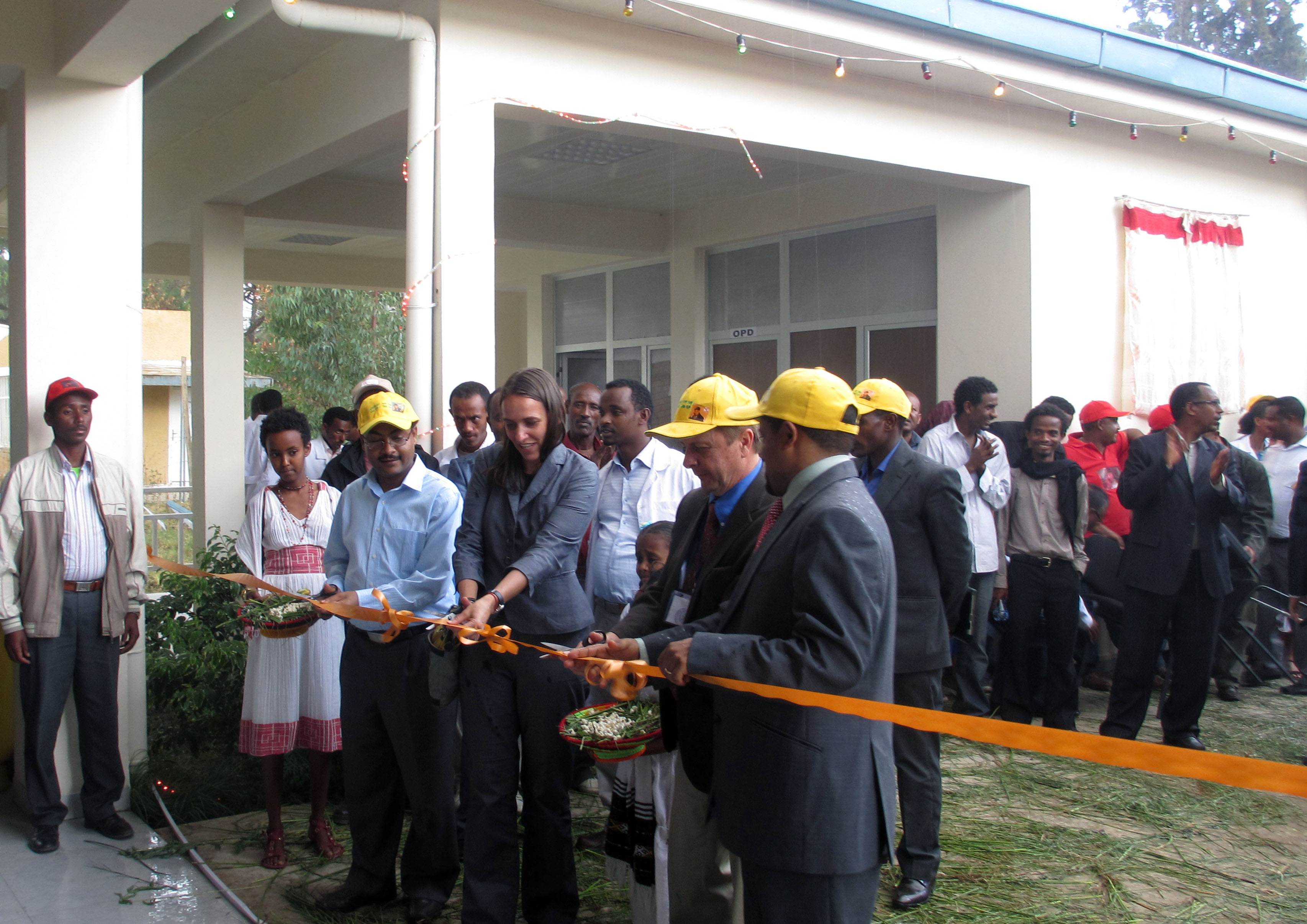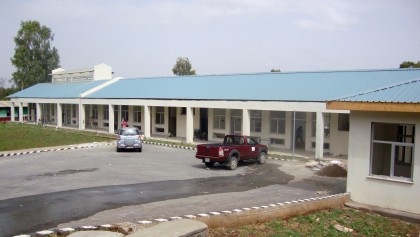Report by Yonathan Alemu
 A state-of-the-art tuberculosis (TB) facility in Ethiopia is a new weapon in the country’s battle against the disease.
A state-of-the-art tuberculosis (TB) facility in Ethiopia is a new weapon in the country’s battle against the disease.
Located at the Mekelle Hospital in the Tigray region, the facility features a TB isolation ward with a multiple-drug resistant TB unit. The ward was constructed by International Training and Education Center for Health (I-TECH) Ethiopia with funding from the United States government. It is one of three such facilities in the country.
Resource-limited countries like Ethiopia struggle to address the growing demand for health care services. TB and MDR-TB are major public health problems with the highest mortality rate of any disease in the country. Ethiopia ranks seventh out of the 22 highest TB-burden countries. MDR-TB is a particularly threatening infection—it is difficult to diagnose without the proper technology. It is also difficult to treat, often requiring patients to stay on medication for two years.
The facility is in response to the urgency of implementing standardized TB prevention and the Federal Ministry of Health’s prioritized scale-up program.
The new TB facility enables the hospital—which had to refer such cases to the capital Addis Ababa—to separately treat TB and MDR-TB patients from other patients and thereby significantly reduce the risk of cross-infection. With a maximum capacity of 35 beds, the facility is able to provide scores of services, including first-rate TB case management, TB treatment, and support and community follow-up systems. It will also serve as a training center to help prevent and control the spread of TB in the region.
 The facility was inaugurated on April 4, 2013. In a ribbon-cutting ceremony, I-TECH Ethiopia officially handed over the well-equipped and furnished facility. Dr. Kesete-Berhan Adamssu, Minister of Ministry of Health, acknowledged the support and strong commitment of CDC and I-TECH Ethiopia in their contribution to the country’s health system development endeavor. He emphasized that the facility will improve and expand TB diagnostic services and screening in rural areas and among HIV positive residents.
The facility was inaugurated on April 4, 2013. In a ribbon-cutting ceremony, I-TECH Ethiopia officially handed over the well-equipped and furnished facility. Dr. Kesete-Berhan Adamssu, Minister of Ministry of Health, acknowledged the support and strong commitment of CDC and I-TECH Ethiopia in their contribution to the country’s health system development endeavor. He emphasized that the facility will improve and expand TB diagnostic services and screening in rural areas and among HIV positive residents.
During the ceremony, a female patient sat quietly in a doorway at the far end of the ward, intently watching the program. Haimanot, (whose name is changed for this report) is in a segregated section of the ward, designed for patients with MDR-TB. She is a 22-year-old single mother of two admitted three weeks ago. She is in a very frail state as she has been living with the MDR-TB for a long time. “Besides, what is more worrying is the status of her two teens as they were living with her in a very small flat which allows them the cross-contamination,” said the TB nurse treating her.
The nurse said that Haimanot’s story is common, particularly in the rural areas of the region. Follow-up in communities with these cases is critical to preventing this deadly and quick-spreading infection.
For a hospital serving more than four million where TB infection is rampant, this facility will play a substantial role in the fight against tuberculosis. It could save countless lives through the scale up of MDR-TB diagnosis, management, and follow-up of patients.
Present at the transfer were several dignitaries and high-level officials, including H.E Dr. Keseteberhan Admassu, Minister of the Ministry of Health; H.E. Hagos Godefy, Tigray Region health bureau head; Dr. Thomas Kenyon, CDC Ethiopia Country Director; and Misti Mc.Dowell, I-TECH Ethiopia Country Director. Also present were representatives from the Mekelle University and regional health bureaus.